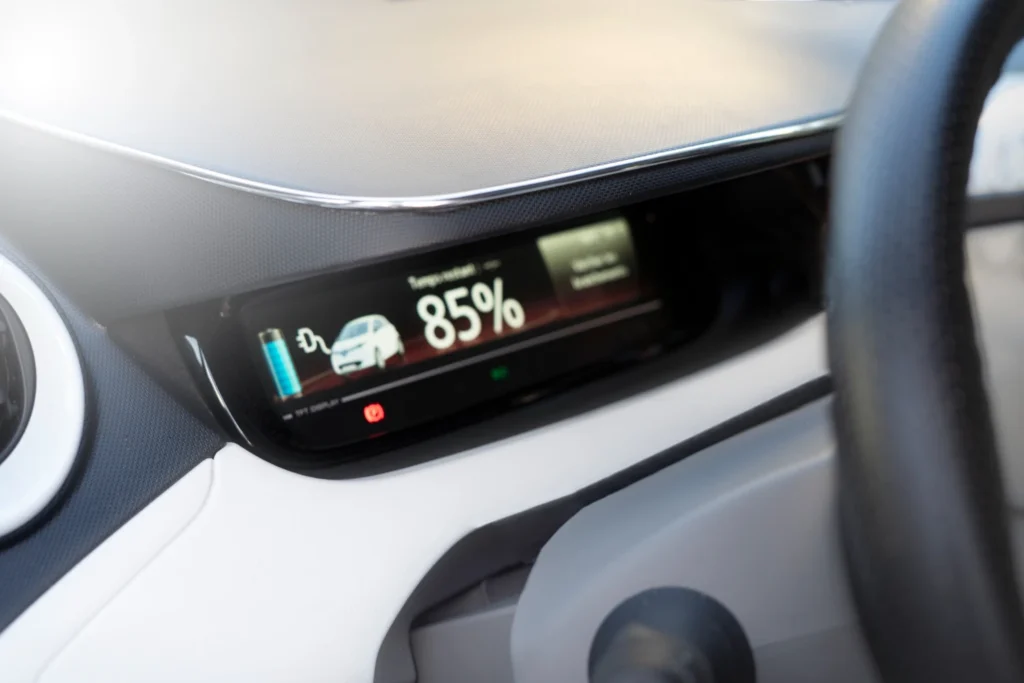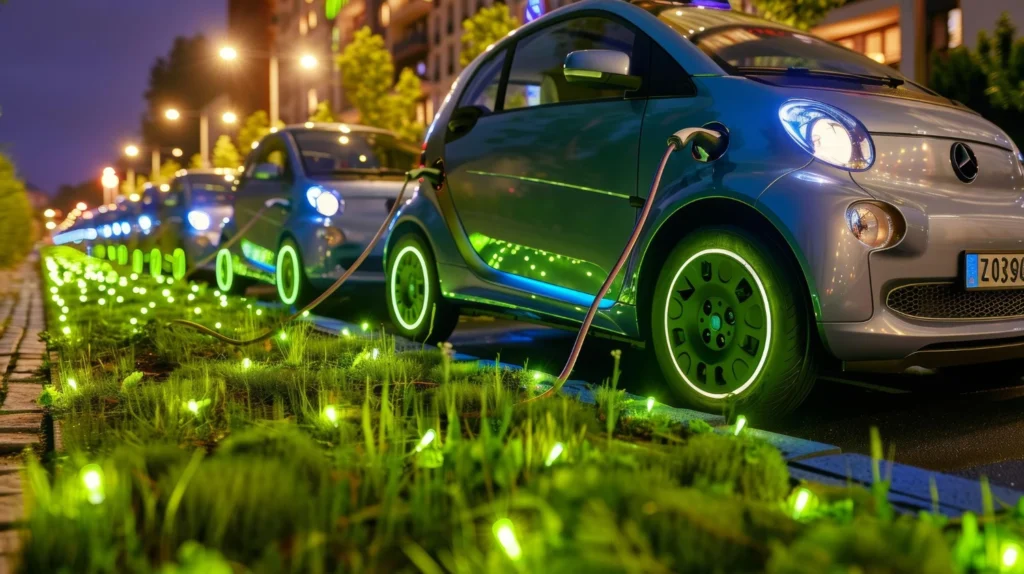“I am thoroughly impressed with the chilling performance of my electric car’s AC. It feels like I’m in Antarctica!” — John, a satisfied EV owner.
As electric vehicles (EVs) gain popularity, many drivers echo John’s sentiment, marveling at these advanced systems’ superior cooling and comfort.
But what makes the air conditioning in electric cars much more efficient and effective than in traditional vehicles?
In this blog post, we will explore the fascinating of electric car air-conditioning systems and why EV AC systems stand out, and how regular checks at a trusted auto repair Houston can help maintain their performance.
If you’re searching for ‘auto repair near me,’ we’re here to help — book your service today.
How Traditional Car AC Systems Work?
Understanding how traditional car AC systems operate is important for appreciating the advancements in EV air conditioning.
In conventional vehicles, the AC system is powered by the engine through a belt-driven compressor.
Compression:
The compressor compresses the refrigerant to increase its pressure, turning it from a gas to a high-pressure liquid.
Condensation:
The high-pressure liquid then enters the condenser, where it gives out heat and, therefore, turns into a cooler liquid.
Expansion:
The refrigerant in liquid form is passed through an expansion valve, which decreases its pressure and, consequently, its temperature.
Evaporation:
The low-pressure liquid then goes to the evaporator, where it takes heat from the interior of the car and turns it back into gas. This process cools the air, which is then circulated in the cabin.
This system, though efficient and practical, has the drawback of relying heavily on the engine’s power.
Thus, it affects fuel consumption and acceleration, especially in traffic-congested areas or when the engine is off most of the time. Moreover, routine car AC service is required for efficient cooling.
How AC Works in Electric Cars:

However, electric cars have adopted a different model of air conditioning. Since they do not have an internal combustion engine, a means of operating the AC system must be developed.
Electric Compressor:
In EV, the compressor is electrically driven and does not use the car motor, as is the case in conventional vehicles.
This allows the system to work constantly without any interruption due to the car’s motion or even the engine’s status.
High Voltage Battery:
The electric compressor derives its power from the battery of the car and is known to provide smooth and efficient services.
Heat Pump System:
Most cars that are electrically powered have a heating and cooling system that is a heat pump system.
This system is very economical, utilizing a small portion of the energy as compared to conventional heating systems.
Thermal Management:
EVs incorporate complex thermal control systems that address battery, motor, and cabin temperature. This integration improves the overall system’s efficiency and productivity.
Why Does AC in Electric Cars Perform Better?
The Story of Two Cars:
Let me describe the situation with an example of two friends, Alex and Jordan, who decided to go on a road trip.
Alex owns a conventional, internal combustion engine car, while Jordan owns an up-to-date electric car (EV).
Both cars have air conditioning, and it is possible to see the difference in quality when using it in both cars.
Energy Efficiency:
As Alex and Jordan set out on a hot summer day, both turn their car’s air conditioning systems up to the highest level.
Alex’s car has a belt-driven compressor that draws power from the engine. This system uses more fuel, as is evident when driving through traffic light sequences or in congested areas.
Alex realizes that he is using less fuel per unit distance than before and begins to think about refueling more often than he used to.
Jordan’s EV employs an electric compressor that draws power from the car’s battery, unlike the hydraulic system.
This system works on its own, making it possible to cool the engine without adding more load to the motor.
Jordan’s cabin is cool when she does not have to worry about energy loss, as the system’s compressor is much more efficient than Alex’s.
Consistent Performance:
During the city traffic, Alex realizes that his AC is not functioning as it should and cannot regulate the temperature inside the car.
The compressor draws its power from the car’s engine, and its operation is not constant, as it depends on the engine’s speed; this makes the car uncomfortable during moments like when the car is stationary.
Conversely, Jordan has an electric compressor that cools the air without fluctuations caused by car movement or idling.
This leads to a much more comfortable, enjoyable, and even faster experience, especially in slow-moving traffic.
Jordan stays calm and enjoys the efficiency of the air conditioning system in the EVs.
Takeaway
the air conditioning systems in electric cars represent a significant advancement in automotive climate control technology.
Unlike traditional vehicles that rely on an engine-driven compressor, electric cars use electrically powered compressors and heat pump technology, making them more energy-efficient and environmentally friendly. This not only reduces the overall energy consumption but also enhances the driving experience by providing consistent and reliable climate control. If you want to get your electric car checked, then don’t forget to contact Erics Car Care. So, call us at 713-667-9293 and book your appointment.

